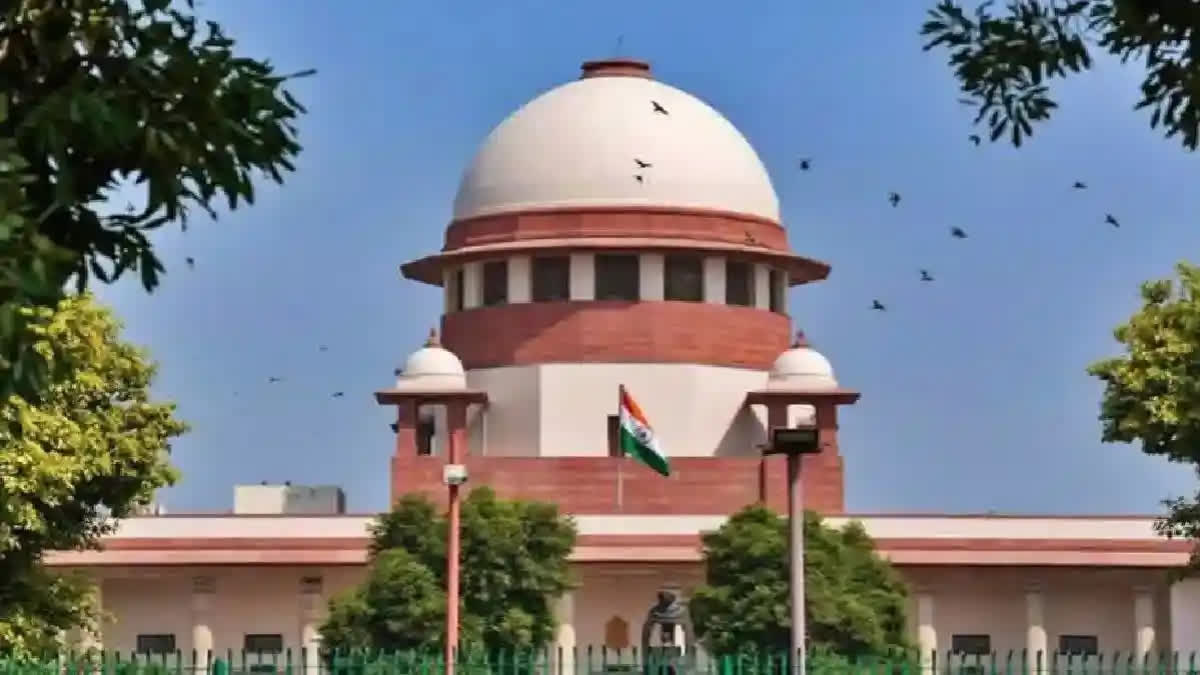New Delhi: The Supreme Court Wednesday observed that there is nothing "fundamentally inconsistent" with a minority institution being an institution of national importance.
The Centre had told the Supreme Court that Aligarh Muslim University is an institution of a "national character" and it cannot be considered as a minority institution. The government’s counsel had vehemently argued that AMU is an institution of national importance, its national character is not affected whether it was established and administered by the minority at the time of inception or not.
Article 30 of the Constitution deals with the right of minorities to establish and administer educational institutions. During the daylong hearing, a seven-judge bench led by Chief Justice of India D Y Chandrachud observed, "There is nothing fundamentally inconsistent with a minority institution being an institution of national importance. That also we have to understand".
In the post-lunch session, senior advocate Rajeev Dhavan, representing AMU, in rejoinder submissions, cited various pre-Independence electoral Acts on provisions reserving seats for minorities including Muslims, Sikhs, and Christians.
Dhavan submitted on surrender vs continuity and gave examples from the AMU Act on the transfer of property, on the faculty etc from Muhammadan Anglo-Oriental (MAO) to AMU. Dhavan said it shows continuity and not surrender. Dhavan mentioned the transfer of students under MAO college to be the responsibility of AMU - an important example of continuity.
The Centre had told the Supreme Court that the Aligarh Muslim University (AMU) surrendered its minority character when it was conferred with the university status under the 1920 AMU Act.
In the morning session, the bench had told a lawyer to refrain from commenting on political personalities, after he took names of former Prime Minister Indira Gandhi and others while arguing on a question concerning the minority status of AMU.
The lawyer argued that Muslims are "not a minority as they are in a position to affect the electoral outcome". "Muslims as a minority affect the elections and that is if (Jarnail Singh) Bhindranwale was the creation of Mrs (Indira) Gandhi, then (Asaduddin) Owaisi is a creation of BJP. They want to divide the Muslim vote," alleged the lawyer.
The CJI told the lawyer to not comment on political personalities and made it clear that the court will not steer away from the area of constitutional law.
The lawyer argued that as per the 2011 census, Muslims were 14.2 per cent of the country's population. The lawyer vehemently pressed that the apex court is not competent to decide this question whether they affect any elections or not. "That is why I have mentioned that your lordships may have some kind of commission to go into this question," he said.
The CJI queried the lawyer, according to you, Muslims are in a position to affect electoral outcomes and therefore, they are not a minority. The lawyer responded in the affirmative. The apex court will continue to hear the matter on Thursday.
A seven-judge bench led by the Chief Justice of India and comprising Justices Sanjiv Khanna, Surya Kant, J B Pardiwala, Dipankar Datta, Manoj Misra and Satish Chandra Sharma, is hearing a batch of petitions regarding the minority status of AMU.




